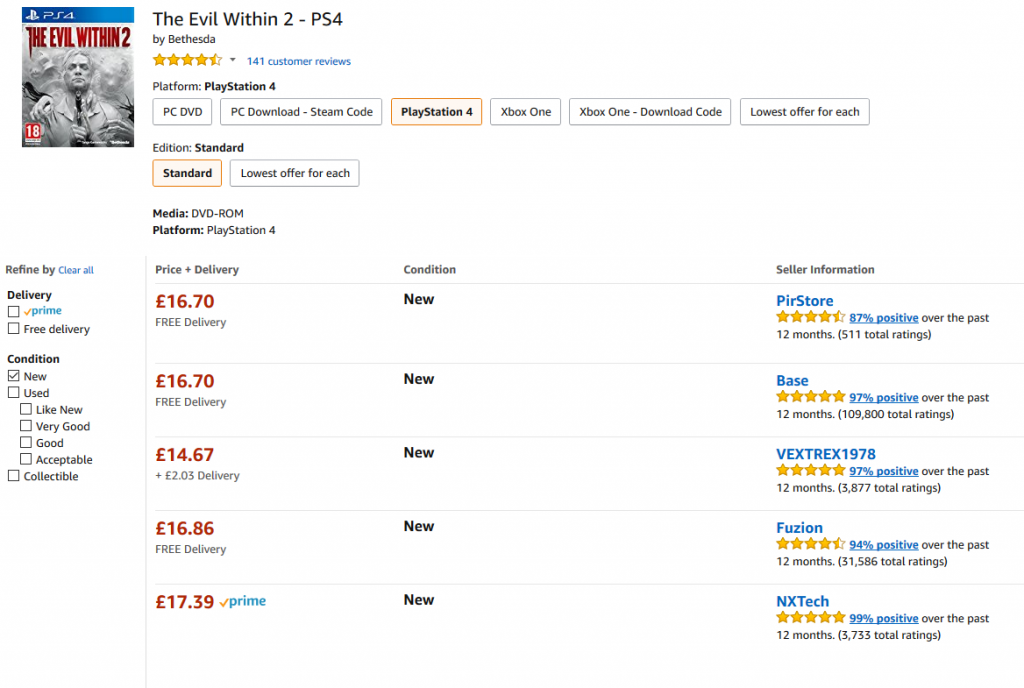One thing that console players are blessed with is the ability to enter a secondary market by reselling their hard copies of physical games, often prompting the purchase of more games in the process. While the morality of this and impact on developer’s profits has always been debated, a new angle has come to light as a result of Bethesda’s legal threats against a reseller for listing a copy of The Evil Within 2 as new.
Bethesda Softworks sent a notice to Ryan Hupp via legal firm Vorys, demanding that he remove his listing of The Evil Within 2 from Amazon’s Marketplace. Since Hupp is not an authorised reseller by any governing body or Bethesda itself, his listing of the game as “new” is seen as against the law. If Hupp wasn’t to comply with the letter, he would have inevitably faced legal action from the developer.
Hupp got in touch with Polygon about the matter, explaining that Bethesda refuted his protection by US law, stating that the resale of video games isn’t protected by the First Sale Doctrine like other copyrighted material despite still being sealed, due to the product lacking a warranty that would be provided by an authorised reseller. This is argued to make the listing “materially different from genuine products.”
Senior vice president of marketing and communications, Pete Hines defended Bethesda’s decision in an interview with Eurogamer, further emphasising on the resale being listed as new. “If it's a previously owned product, you have to sell it as a previously owned product – you cannot represent it's new because we have no way to verify what you're selling actually is new.”
“We're not trying to stop anybody from selling used games. People sell used games all the time – we understand that, we're not trying to stop that,” Hines justifies. “He, specifically, was trying to list it as a new product as if he was GameStop or Best Buy… He's not a company, he's not a distributor… and we don't want our customers buying stuff from a vendor like Amazon where they think they're buying a new product and suddenly finding out they got a disc that's been played.”
So far, Hupp seems to be the only seller targeted by Bethesda, although it seems as though the wording of the takedown is prepared for more if this doesn’t act as the deterrent the publisher hopes it will. While this has attracted an overwhelming amount of negative press, many companies that do accept trade-ins have refused sealed copies of games for years, due to their inability to verify the contents.
“I understand the legal arguments Bethesda are relying on, and accept that they have some legitimate interest in determining how their products are sold at retail,” Hupp said to Polygon. “but threatening individual customers with lawsuits for selling games they own is a massive overreach.”
KitGuru Says: Given that third-party resellers such as Amazon and eBay have their own protections against false advertising baked into their respective terms and conditions, it is debatable whether a publisher should step in to mediate, especially when it sours a fundamental part of the physical games market. How do you feel about Bethesda’s recent threats of legal action?
 KitGuru KitGuru.net – Tech News | Hardware News | Hardware Reviews | IOS | Mobile | Gaming | Graphics Cards
KitGuru KitGuru.net – Tech News | Hardware News | Hardware Reviews | IOS | Mobile | Gaming | Graphics Cards



